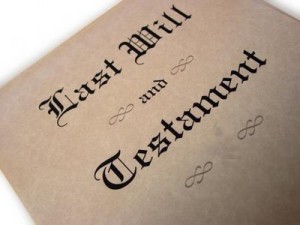One of the most common instruments I prepare for clients is a Beneficiary Deed.
What exactly is a Beneficiary Deed?
A Beneficiary Deed, allows an owner of real estate to execute a deed that names a beneficiary who will own the property after the death of the owner without going through probate.
During the owner’s lifetime, the owner retains full power and control over the property. The Beneficiary Deed must be recorded before the death of the owner to have effect. The property owner can make changes to a Beneficiary Deed at any time by recording a subsequent Beneficiary deed.
For example, John owns a primary residence in Missouri. John wants his son to inherit the residence if he dies. John signs and records a Beneficiary Deed, effective upon his death, naming the son as beneficiary. When John dies, assuming he still owns the home, the son has to only record a death certificate and the property is his. During John’s lifetime, the son has no rights to the property. John may sell the property without permission of his son.

Benefits of using Beneficiary Deed:
The primary reason for using a Beneficiary Deed is to avoid Probate after the death of the owner. Probate is a court-supervised process and hence is complex, time consuming and expensive. The Probate process usually takes 6 months and costs much more than executing a Beneficiary Deed.
A Beneficiary Deed allows the owner to retain/enjoy full ownership of the property until death.
Revision or changes to a Beneficiary Deed can be made easily through revocation or subsequent filing.
There is no consideration needed when creating a Beneficiary Deed.
Beneficiary Deeds may reduce future tax burdens by taking advantage of a “step-up” in basis.
Why choose a Beneficiary Deed instead of a Joint Deed?
Some people file a Joint Deed to add heirs to the property. Doing so has a few pitfalls. For Example, Mary owns a property that she bought for $200,000 which is now worth $400,000. Mary adds her daughter on the deed as a joint tenant. Now the daughter owns a portion of the house. Mary can’t sell the property without the daughter’s consent/signature. If Mary had owned the house in her own name and sold the house there would be no income tax. Now since she owns the house jointly with her daughter, the daughter could also be liable to State/Federal taxes. Also if the daughter has any debt/bankruptcy, lawsuits, or judgments against her, the creditor can file a lien or force the sale of the house. This can be avoided by filing a Beneficiary Deed naming the daughter as the Beneficiary. The property transfers to the daughter only upon the death of the mother.
A Beneficiary Deed does not act as a cloud on title when selling the home to a third party.
Missouri is one of a handful of states in the country where a Beneficiary Deed can be executed and it has become an easy and convenient estate planning tool for clients. A beneficiary deed is an easy and cost effective way to avoid probate. So when utilized correctly Beneficiary Deeds offer the owner of real estate one of the easiest, most beneficial ways of transferring property to a specified beneficiary outside of probate or a trust.

